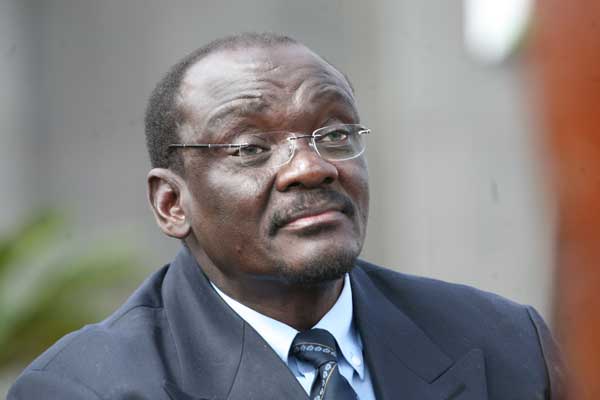
BY VENERANDA LANGA LEGAL think-tank Veritas has expressed concern over Cabinet’s recent move to introduce another code of conduct for political parties, saying this would lead to over-regulation as the rules for political parties were already provided for in other statutes like the Electoral Act. In its latest Bill Watch publication, Veritas noted the recommendations that were presented in Cabinet by Vice-President Kembo Mohadi, chairperson of the Cabinet Committee on National Peace and Reconciliation (NPRC), on the 2018 and 2019 NPRC annual reports. One of the recommendations presented to Cabinet by Mohadi read: “That legislation and a code of conduct will be put in place to regulate the operations and conduct of all political parties.” Veritas said this was not necessary, arguing that “most parties have a code of conduct and there is one in the schedule to the Electoral Act. Over-regulation is not compatible with a multi-party democracy”. Mohadi also said another recommendation was that campaigning against one’s country shall be criminalised. Of late, Zanu PF through its National Assembly chief whip Pupurai Togarepi has been advocating for the introduction of the Patriotic Act to criminalise people who campaign against the country, including calling for sanctions. But Veritas warned that there should be a distinction between campaigning against the country and against the ruling party, adding that this would also infringe freedom of expression. “This could be dangerous as it will be difficult to draw a clear distinction between campaigning against the country (the nation) and campaigning against policies of the government (the ruling party). “Criminalising the former may possibly be justifiable, but criminalising the latter will reinforce tyranny. Either way, implementing the recommendation is likely to infringe freedom of expression. In any event, the crimes of treason and subverting a constitutional government already cover the criminal aspects of ‘campaigning against one’s country’,” the legal think-tank said. Another recommendation by Mohadi that laws must be amended to foster tolerance, equality and social cohesion and prohibit hate speech, Veritas said while this sounds reasonable, the danger was that it also has the potential to further weaken freedom of expression. “This resolution on the surface seems reasonable, but it could be taken much too far and be yet another blow to freedom of expression. “Tolerance of others is a value that should be fostered, but fostering social cohesion can easily turn into enforcing uniformity and respect for diversity is one of Zimbabwe’s founding values expressed in section 3 of the Constitution,” it said. The legal think-tank also called for the implementation of section 210 of the Constitution, which stipulates that a law must be enacted to provide for an effective and independent mechanism for receiving and investigating complaints from members of the public about misconduct on the part of the members of the security services, and for remedying any harm caused by such misconduct. Veritas said a Witness Protection Bill should be expedited and treated as high priority as recommended by Mohadi. On the recommendation to document agreeable narratives about Zimbabwe’s history, Veritas said it could be a two-edged sword that could be used to distort the truth. “For peace and reconciliation to take place it is important that the stories of individuals and communities should be heard. Not just historians but communities should be resourced and a stipulation that the narratives be “reframed” and are “agreeable” is akin to censorship and could all too easily degenerate into paying historians to re-write history in keeping with narratives put forth by the ruling party. “For healing to take place people must be able to tell their stories based on their own experience. No one should have a monopoly of the truth. Zimbabwe has much to be proud of in its history, but we must not suppress uncomfortable truths,” it said. The think-tank said if Mohadi’s recommendations were translated into legislation, there must be wide consultation and debate first to weed out conflict which could be against the purpose of the NPRC.











